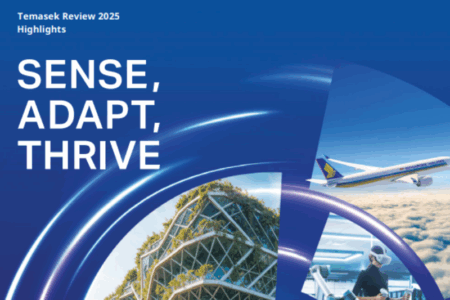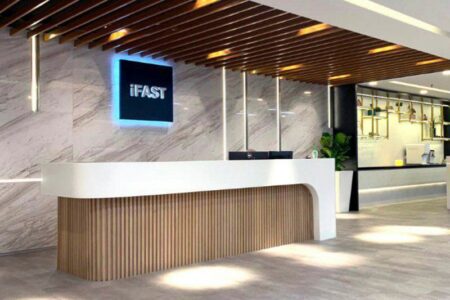Note: This article has been updated with more information after the author attended a meeting with the REIT managers.
Many Singaporean investors love having income from their stocks.
In fact, it’s no secret that many investors hold a portfolio of income stocks that provide steady dividend payments.
Over the years, real estate investment trusts, or REITs, have emerged as a favourite dividend-paying asset class.
These securitised bundles of real estate assets generate a steady, dependable rental income stream year after year, allowing them to pay a regular (and at times, increasing) distribution to unitholders.
So, it is fitting that the very first IPO for the decade would be Elite Commercial REIT.
Elite Commercial REIT holds a portfolio of 97 quality properties located in the United Kingdom (UK) with 96 properties being freehold.
The offer price for the IPO is set at £0.68 per unit. This is the first REIT that will be denominated in British pound sterling (GBP). The term sheet stated that the indicative forecast yield is a high 7.1% to 7.4% for the fiscal year 2020.
Here are six noteworthy aspects of this REIT that investors should be aware of.
Tenant Concentration
The prospectus said that 99% of the REIT’s gross rental income is derived from leases with the UK government via the Secretary of State for Housing, Communities and Local Government.
The Department for Work and Pensions (DWP) is the entity that occupies each property.
The DWP is the government’s largest public service department and helps to administer the State Pension and other benefits to around 20 million claimants and customers.
Though the 97 properties are well spread out over multiples locations within the UK, including London, Midlands, Yorkshire, Scotland and Wales, investors need to be mindful that there is essentially only one tenant involved.
To summarise, the REIT is entirely dependent on the UK government for almost all of its rental income.
The UK government had just signed new 10-year leases on the properties within the IPO back in 2018, and these leases come with rental escalation clauses every five years, subject to a minimum annual increase of 1% and a maximum of 5%.
The current structure reduces the risk of the UK government switching to alternative properties as the lease was just renewed two years ago, and will stretch to 2028.
However, with the reliance of the REIT on a single tenant, we cannot ignore the risk of the concentration involved.
Should there be any event impacting the UK Government’s ability to pay its dues, whether it is because of Brexit or budget cuts, there could be a negative impact on the rental income enjoyed by the REIT.
Currency concentration
Elite Commercial REIT touts itself to be the first REIT listed in Singapore to be denominated in GBP.
However, this proclamation may not be a good thing as the UK is now embroiled in a messy Brexit situation, and there has been a loss of confidence as political parties wrestle for control.
The GBP-SGD (Singapore dollar) exchange rate has witnessed a steep plunge from a high of 2.15 back in September 2015, to the current 1.76. For those who are counting, that is an 18.1% fall in the currency over a period of over four years.
If Brexit is not resolved satisfactorily, there could be further downside to the GBP.
Though unitholders can opt to receive their distributions in either GBP or SGD, those who live in Singapore would surely prefer SGD.
Receiving your distributions in GBP would mean that your distributions will be exposed to the GBP-SGD exchange rate, and could fluctuate significantly due to the uncertain political situation in the UK.
Fee structure
As part of my research, I also took a look at Elite Commercial REIT’s fee structure.
There are two components to the management fee — the base fee and the performance fee.
The base fee is computed based on 10% of the REIT’s annual distribution income, while the performance fee is computed as 25% of the increase in the distribution per unit (DPU) in the current year compared to the DPU declared a year ago, multiplied by the weighted average number of units in issue.
To get a sense of whether these numbers seemed reasonable, I compared the fee structure to another REIT with overseas office properties — Manulife US REIT (SGX: BTOU).
It turns out that Manulife US REIT has exactly the same fee structure as Elite Commercial REIT, so it is fair to say that the fees are reasonable and not excessive.
Manulife US REIT’s units were priced at US$0.83 per unit, and the share price has since risen to US$1.02. Notably, the US-based REIT had carried out a series of acquisitions since its IPO.
Investors should note that by tying performance fee to the increase in DPU for the REIT, the manager and unitholders are aligned in wanting a higher year-on-year DPU, which could be a positive aspect.
Counter-cyclical business
DWP’s business can be said to be counter-cyclical, meaning that the properties actually witness more business and footfall when economic prospects are poor.
The public-facing properties (around 82% of the portfolio) are labelled as Jobcentre Plus Centres and assistance will be provided to re-skill and re-train people who are unemployed.
The DWP disburses GBP 182 billion a year to around 1/3 of the UK’s population. This works out to around GBP 9,000 per person. The funds are split into three distinct groups:-
a. Ages 16-65 — disburses GBP 20 billion per year for housing and unemployment
b. State pension scheme — disburses GBP 110 billion per year
c. Disability pay-outs — disburses GBP 53 billion per year
Currently, around 77,000 people remain unemployed in the UK. Thus, the DWP is integral to the social fabric of society.
Currency hedging
Currency hedging to prevent fluctuations of the British Pound (GBP) against the Singapore Dollar (SGD) will be prohibitively expensive. As such, the manager has not chosen to do so.
As the REIT will be denominated in GBP, and all its assets and liabilities are also in GBP, there is thus no currency risk involved if unitholders choose to receive their distributions in GBP.
Currency fluctuations will only be applicable for unitholders who elect to receive their distributions in SGD.
Growth through enhancements and acquisitions
The manager plans to grow the REIT through a combination of asset enhancement initiatives (AEI) and acquisitions.
For AEI, the portfolio owns a property known as Peel Park that has under-developed land of around 11.7 hectares. If the DWP decides to develop and use this plot of land, it could potentially double the size of the net lettable area within two to three years.
Sponsor Elite Partners Capital has purchased 62 commercial buildings (also with DWP as sole tenant) and packaged them into a fund called Elite Commercial Fund II. The REIT has the right of first refusal (ROFR) on these properties, meaning that the sponsor has to offer them to the REIT manager first before they can be marketed externally.
Get more stock updates on our Facebook page. Click here to like and follow us on Facebook.
If you’d like to learn more investing concepts, and how to apply them to your investing needs, sign up for our free investing education newsletter, Get Smart! Click HERE to sign up now.
The Smart Investor is not licensed or otherwise regulated by the Monetary Authority of Singapore, and in particular, is not licensed or regulated to carry on business in providing any financial advisory service.
Accordingly, any information provided on this site is meant purely for informational and investor educational purposes and should not be relied upon as financial advice. No information is presented with the intention to induce any reader to buy, sell, or hold a particular investment product or class of investment products. Rather, the information is presented for the purpose and intentions of educating readers on matters relating to financial literacy and investor education. Accordingly, any statement of opinion on this site is wholly generic and not tailored to take into account the personal needs and unique circumstances of any reader. The Smart Investor does not recommend any particular course of action in relation to any investment product or class of investment products. Readers are encouraged to exercise their own judgment and have regard to their own personal needs and circumstances before making any investment decision, and not rely on any statement of opinion that may be found on this site.
Disclaimer: Royston Yang does not own shares in any of the companies mentioned.




